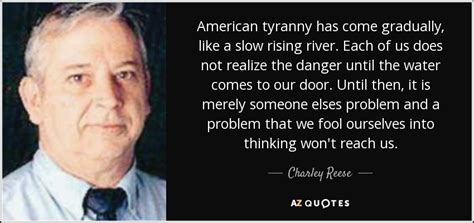A Quote by Potter Stewart
The equal protection standard of the constitution has one clear and central meaning - it absolutely prohibits invidious [repugnant] discrimination by government...Under our Constitution, any official action that treats a person differently on account of his race or ethnic origin is inherently [by nature] suspect and presumptively [probably] invalid...Under the Constitution we have, one practice in which government may never engage in the practice of racism - not even "temporarily" and not even as an "experiment."
Quote Topics
Related Quotes
Individuals who have been wronged by unlawful racial discrimination should be made whole; but under our Constitution there can be no such thing as either a creditor or a debtor race. That concept is alien to the Constitution's focus upon the individual. ...To pursue the concept of racial entitlement - even for the most admirable and benign of purposes - is to reinforce and preserve for future mischief the way of thinking that produced race slavery, race privilege and race hatred. In the eyes of government, we are just one race here. It is American.
The suggestion of denying any measure of their full political rights to such a great group of our population as the colored people is one which, however it might be received in some other quarters, could not possibly be permitted by one who feels a responsibility for living up to the traditions and maintaining the principles of the Republican Party. Our Constitution guarantees equal rights to all our citizens, without discrimination on account of race or color. I have taken my oath to support that Constitution.
Government cannot make us equal; it can only recognize, respect, and protect us as equal before the law. That [affirmative action] programs may have been motivated, in part, by good intentions cannot provide refuge from the principle that under our Constitution, the government may not make distinctions on the basis of race.
The principle of allegiance to the Constitution is basic to our freedom....when you see government invading any of these realms of freedom which we have under our Constitution, you will know that they are putting shackles on your liberty, and that tyranny is creeping upon you, ...no matter what the reason and excuse therefore may be.
Every single person in the government swears an oath to the very same constitution, to abide by the laws in pursuance of this constitution, and they all have the responsibility to follow its plain words....If a judge makes a ruling that is contrary to the plain words of the Constitution, then it's not law, it's just his bad opinion!
So far as the government is concerned, there is only one holy book, which is the constitution of India. The unity and the integrity of the country are the topmost priorities. All religions and all communities have the same rights, and it is my responsibility to ensure their complete and total protection. My government will not tolerate or accept any discrimination based on caste, creed and religion.
In explaining the Constitution, James Madison, the acknowledged father of the Constitution, wrote in Federalist Paper 45: 'The powers delegated by the proposed Constitution to the Federal government are few and defined. Those which are to remain in the State governments are numerous and indefinite. The former will be exercised principally on external objects, as war, peach, negotiation, and foreign commerce.' Has the Constitution been amended to permit Congress to tax, spend and regulate as it pleases or have Americans said, 'To hell with the Constitution'?
It [the Constitution] didn't break free from the essential constraints that were placed by the founding fathers in the Constitution, at least as it's been interpreted, and the Warren court interpreted it in the same way that generally the Constitution is a charter of negative liberties. It says what the states can't do to you, it says what the federal government can't do to you, but it doesn't say what the federal government or the state government must do on your behalf. And that hasn't shifted.
My construction of the constitution is very different from that you quote. It is that each department is truly independent of the others, and has an equal right to decide for itself what is the meaning of the constitution in the cases submitted to its action; and especially, where it is to act ultimately and without appeal.































